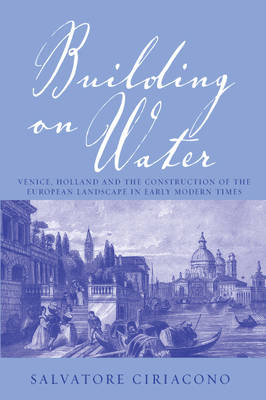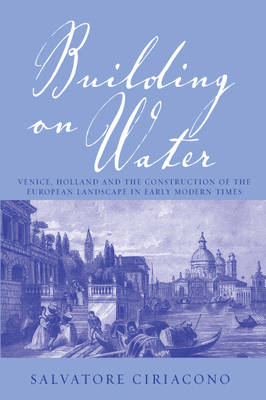
- Afhalen na 1 uur in een winkel met voorraad
- Gratis thuislevering in België vanaf € 30
- Ruim aanbod met 7 miljoen producten
- Afhalen na 1 uur in een winkel met voorraad
- Gratis thuislevering in België vanaf € 30
- Ruim aanbod met 7 miljoen producten
Building on Water
Venice, Holland and the Construction of the European Landscape in Early Modern Times
Salvatore CiriaconoOmschrijving
A fundamental natural resource, water and its use not only reflect "modes of production" but also that complex interplay between resources and their exploitation (and domination) by various social agents, who in their turn are inevitably influenced by the abundance or rarity of water supplies. Focusing on scientific, social and economic issues from the 16th to the 19th century, the author, one of Italy's leading historians in this field, looks at the innumerable conflicts that arose over water resources and the environmental impact of projects intended to control them. Venice and Holland are undoubtedly the two most fascinating cases of societies "built on water," with the conquest of vast expanses of marshland - either inland or on the coast (the Dutch polders or the Venetian lagoon) - not only stimulating agricultural production, but also nurturing a deeply-felt relationship between the local populations and the element of water itself. The author rounds off his study by looking at the influence the hydraulic technology developed in Holland would have on many European countries (France, England and Germany in particular) and at questions raised by contemporaries about the environmental impact of agricultural progress and its effects upon the social-economic equilibria within the communities concerned.
Specificaties
Betrokkenen
- Auteur(s):
- Uitgeverij:
Inhoud
- Aantal bladzijden:
- 272
- Taal:
- Engels
Eigenschappen
- Productcode (EAN):
- 9781845450656
- Verschijningsdatum:
- 1/05/2006
- Uitvoering:
- Hardcover
- Formaat:
- Genaaid
- Afmetingen:
- 152 mm x 229 mm
- Gewicht:
- 594 g

Alleen bij Standaard Boekhandel
Beoordelingen
We publiceren alleen reviews die voldoen aan de voorwaarden voor reviews. Bekijk onze voorwaarden voor reviews.











